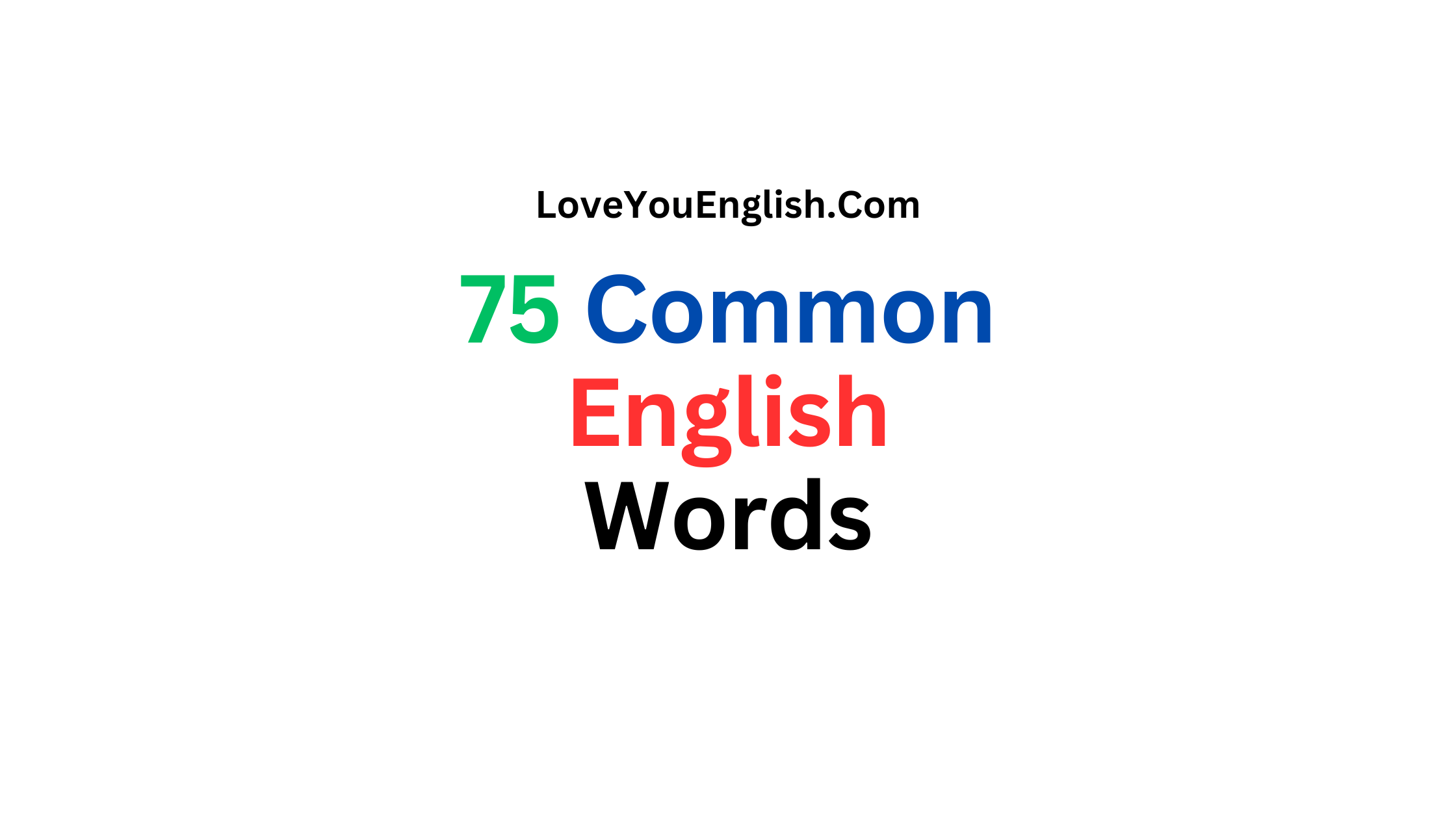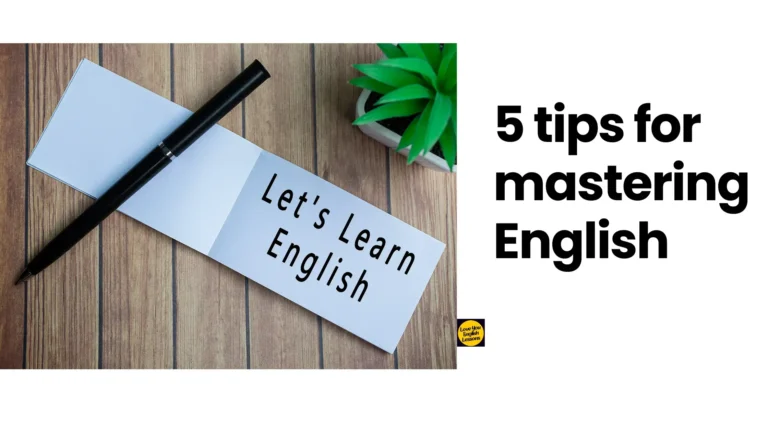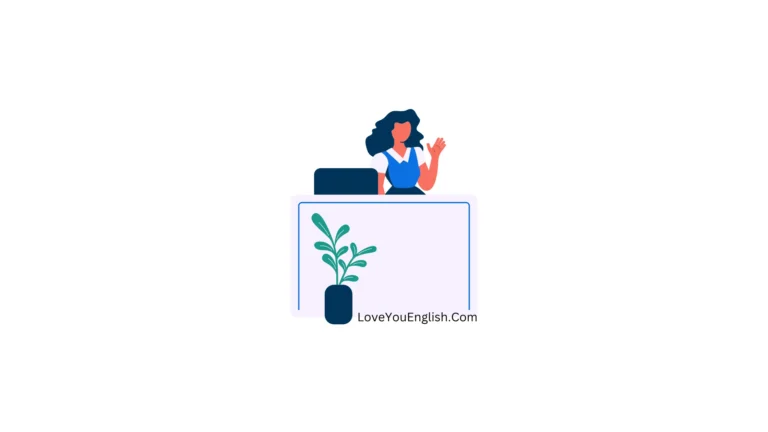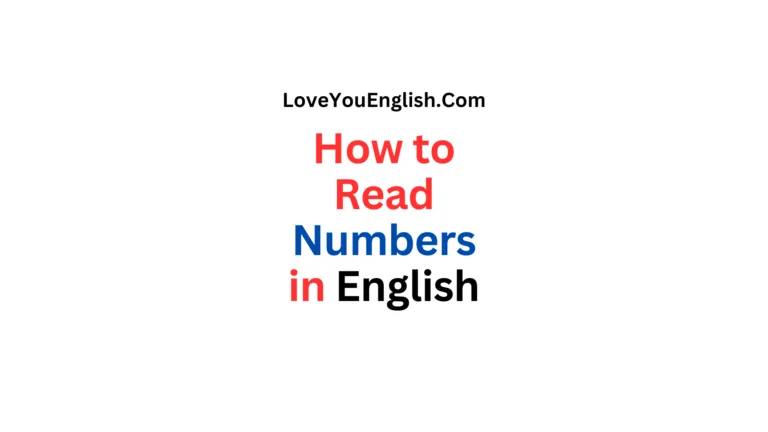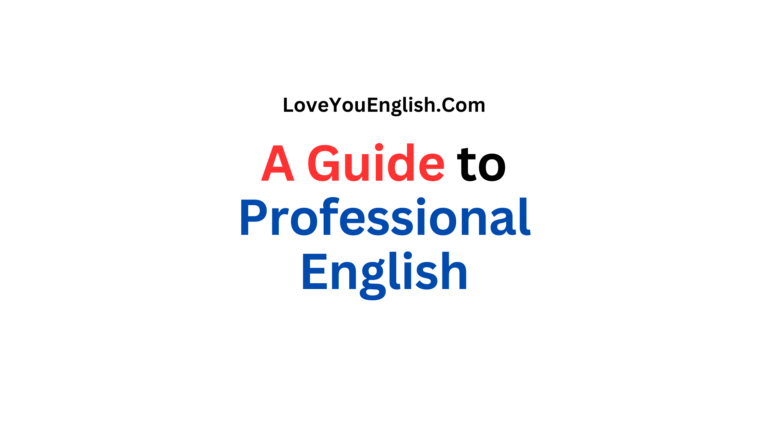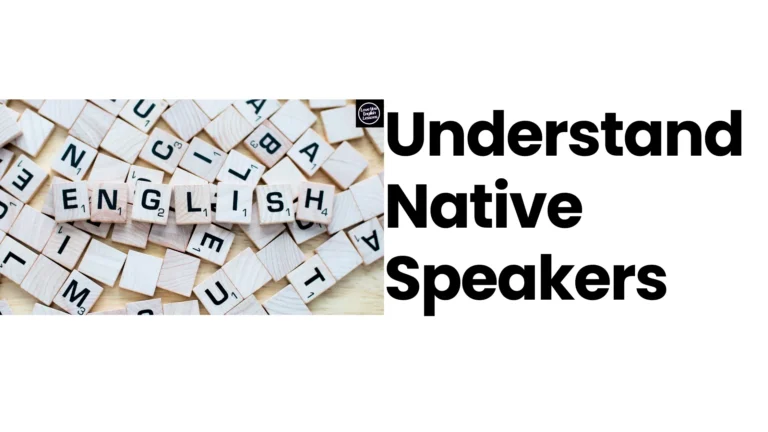75 Common English Words Used in Daily Life
75 Common English Words Used in Daily Life
Learning English can be fun and rewarding, especially when you start using common words in your daily life.
These words help you communicate effectively and make conversations easier.
Whether you are a beginner or looking to improve your English skills, knowing these common words is a great place to start.
In this post, we will explore 75 everyday English words that you can use in different situations.
Let’s dive in!
1. Hello
Meaning: A greeting.
Example: “Hello, how are you?”
Usage: Use “hello” when you meet someone or start a conversation.
2. Goodbye
Meaning: A way to end a conversation or part ways.
Example: “Goodbye! See you later!”
Usage: Use “goodbye” when you are leaving or ending a conversation.
3. Please
Meaning: A polite way to ask for something.
Example: “Can I have a glass of water, please?”
Usage: Use “please” to make requests sound polite.
4. Thank you
Meaning: A way to show gratitude.
Example: “Thank you for your help.”
Usage: Use “thank you” to show appreciation.
5. Sorry
Meaning: An apology.
Example: “I’m sorry for being late.”
Usage: Use “sorry” when you want to apologize.
6. Yes
Meaning: A positive response or agreement.
Example: “Yes, I would like some coffee.”
Usage: Use “yes” to agree or accept something.
7. No
Meaning: A negative response or refusal.
Example: “No, I don’t want any dessert.”
Usage: Use “no” to decline or refuse something.
8. Help
Meaning: Assistance or support.
Example: “Can you help me with my homework?”
Usage: Use “help” when you need assistance.
9. Work
Meaning: A job or task.
Example: “I have to go to work at 9 a.m.”
Usage: Use “work” to talk about your job or duties.
10. Home
Meaning: The place where you live.
Example: “I’m going home after school.”
Usage: Use “home” to refer to your living place.
11. Friend
Meaning: A person you know and like.
Example: “She is my best friend.”
Usage: Use “friend” to talk about people you are close to.
12. Food
Meaning: Things we eat.
Example: “What’s your favorite food?”
Usage: Use “food” to talk about meals and eating.
13. Water
Meaning: A clear liquid we drink.
Example: “I need a glass of water.”
Usage: Use “water” when talking about drinks.
14. Book
Meaning: A set of written or printed pages.
Example: “I am reading a new book.”
Usage: Use “book” to talk about reading material.
15. Car
Meaning: A vehicle for transportation.
Example: “My car is parked outside.”
Usage: Use “car” when talking about vehicles.
16. School
Meaning: A place for learning.
Example: “I go to school every day.”
Usage: Use “school” to refer to educational institutions.
17. Teacher
Meaning: A person who teaches students.
Example: “My teacher is very kind.”
Usage: Use “teacher” to talk about educators.
18. Student
Meaning: A person who learns from a teacher.
Example: “She is a student in the fifth grade.”
Usage: Use “student” for people who attend school or classes.
19. Family
Meaning: A group of people related by blood or marriage.
Example: “My family is very supportive.”
Usage: Use “family” to refer to relatives and loved ones.
20. Phone
Meaning: A device for communication.
Example: “I need to charge my phone.”
Usage: Use “phone” to talk about mobile devices.
21. Computer
Meaning: An electronic device for work or leisure.
Example: “I use my computer for writing.”
Usage: Use “computer” for electronic devices used for various tasks.
22. Money
Meaning: A medium of exchange.
Example: “I need money to buy groceries.”
Usage: Use “money” when discussing finances and payments.
23. Health
Meaning: The state of being well.
Example: “Eating fruits is good for your health.”
Usage: Use “health” to talk about well-being.
24. Rest
Meaning: A period of relaxation.
Example: “I need some rest after work.”
Usage: Use “rest” when you need to relax or take a break.
25. Sleep
Meaning: Resting the body and mind.
Example: “I try to get eight hours of sleep.”
Usage: Use “sleep” to talk about nighttime rest.
26. Exercise
Meaning: Physical activity for health.
Example: “I exercise at the gym three times a week.”
Usage: Use “exercise” for physical activities and workouts.
27. Travel
Meaning: Going from one place to another.
Example: “I love to travel to new countries.”
Usage: Use “travel” when discussing trips and journeys.
28. Bookstore
Meaning: A place to buy books.
Example: “I bought this book at the bookstore.”
Usage: Use “bookstore” to refer to a shop for books.
29. Restaurant
Meaning: A place to eat meals.
Example: “We had dinner at a nice restaurant.”
Usage: Use “restaurant” for places where you eat out.
30. Market
Meaning: A place to buy goods.
Example: “I went to the market for fresh vegetables.”
Usage: Use “market” for places where you buy food and other items.
You may want to read more:
- Advanced Adjectives for Describing People
- 5 English slang terms you need to know in 2024
- How to Expand Your English Vocabulary Fast
- 29 Slang Words You Need to Know
- How to Build English Vocabulary: 10 Tips for Success
31. Bus
Meaning: A vehicle for public transportation.
Example: “I take the bus to work.”
Usage: Use “bus” to talk about public transportation.
32. Train
Meaning: A vehicle that travels on tracks.
Example: “I took the train to visit my cousin.”
Usage: Use “train” for transportation by rail.
33. Airport
Meaning: A place where airplanes take off and land.
Example: “I arrived at the airport early for my flight.”
Usage: Use “airport” when talking about air travel.
34. Doctor
Meaning: A person who treats illnesses.
Example: “I need to see a doctor for a check-up.”
Usage: Use “doctor” for medical professionals.
35. Hospital
Meaning: A place for medical care.
Example: “He was admitted to the hospital for surgery.”
Usage: Use “hospital” for medical treatment facilities.
36. Pharmacy
Meaning: A store for medicines.
Example: “I need to go to the pharmacy to get my prescription.”
Usage: Use “pharmacy” for buying medications.
37. Train Station
Meaning: A place where trains stop.
Example: “I met her at the train station.”
Usage: Use “train station” for locations where you catch trains.
38. Library
Meaning: A place with books and resources for reading or research.
Example: “I borrowed this book from the library.”
Usage: Use “library” for book borrowing and studying.
39. Bank
Meaning: A place for managing money.
Example: “I need to visit the bank to deposit some money.”
Usage: Use “bank” for financial services.
40. Store
Meaning: A place to buy goods.
Example: “I went to the store to buy groceries.”
Usage: Use “store” for places where you shop.
41. Clothes
Meaning: Items you wear.
Example: “I bought new clothes for the summer.”
Usage: Use “clothes” for garments and apparel.
42. Shower
Meaning: A place to wash your body.
Example: “I take a shower every morning.”
Usage: Use “shower” for bathing or cleaning.
43. Toothbrush
Meaning: A tool for cleaning teeth.
Example: “Don’t forget your toothbrush when you travel.”
Usage: Use “toothbrush” for dental hygiene.
44. Tea
Meaning: A drink made by steeping leaves in hot water.
Example: “Would you like a cup of tea?”
Usage: Use “tea” for the drink or the time of day.
45. Coffee
Meaning: A drink made from roasted coffee beans.
Example: “I start my day with a cup of coffee.”
Usage: Use “coffee” for the drink.
46. Bread
Meaning: A staple food made from flour.
Example: “I need to buy some bread for breakfast.”
Usage: Use “bread” for a common food item.
47. Eggs
Meaning: A food item from chickens.
Example: “I like to eat eggs for breakfast.”
Usage: Use “eggs” for a common food item.
48. Milk
Meaning: A white liquid from cows.
Example: “I put milk in my coffee.”
Usage: Use “milk” for a dairy product.
49. Butter
Meaning: A dairy product used in cooking.
Example: “I put butter on my toast.”
Usage: Use “butter” for cooking or spreading.
50. Cheese
Meaning: A dairy product made from milk.
Example: “I love cheese on my pizza.”
Usage: Use “cheese” for various types of dairy products.
51. Rice
Meaning: A staple grain used in many meals.
Example: “Rice is a part of my daily diet.”
Usage: Use “rice” for a common food staple.
52. Pasta
Meaning: Italian food made from wheat flour.
Example: “I made pasta for dinner.”
Usage: Use “pasta” for Italian cuisine.
53. Fruit
Meaning: Edible parts of plants.
Example: “Apples and bananas are fruits.”
Usage: Use “fruit” for food from plants.
54. Vegetables
Meaning: Edible parts of plants.
Example: “Carrots and spinach are vegetables.”
Usage: Use “vegetables” for plant-based foods.
55. Dinner
Meaning: The main meal of the day.
Example: “We have dinner at 7 p.m.”
Usage: Use “dinner” for the evening meal.
56. Lunch
Meaning: A meal eaten in the middle of the day.
Example: “I had a sandwich for lunch.”
Usage: Use “lunch” for the midday meal.
57. Breakfast
Meaning: The first meal of the day.
Example: “I usually have eggs for breakfast.”
Usage: Use “breakfast” for the morning meal.
58. Weekend
Meaning: The end of the week.
Example: “I relax on the weekend.”
Usage: Use “weekend” for Saturday and Sunday.
59. Holiday
Meaning: A special day for celebration or rest.
Example: “We go on vacation during the holiday.”
Usage: Use “holiday” for special occasions.
60. Vacation
Meaning: A break from work or school.
Example: “We are planning a vacation to the beach.”
Usage: Use “vacation” for trips and time off.
61. City
Meaning: A large town with many people.
Example: “New York is a big city.”
Usage: Use “city” for large urban areas.
62. Town
Meaning: A smaller urban area than a city.
Example: “I grew up in a small town.”
Usage: Use “town” for smaller communities.
63. Street
Meaning: A public road in a city or town.
Example: “My house is on Maple Street.”
Usage: Use “street” for road names and locations.
64. House
Meaning: A building for people to live in.
Example: “We just bought a new house.”
Usage: Use “house” for a place where people live.
65. Apartment
Meaning: A set of rooms for living in.
Example: “She lives in a nice apartment downtown.”
Usage: Use “apartment” for rented living spaces.
66. Room
Meaning: A part of a building for specific use.
Example: “My bedroom is on the second floor.”
Usage: Use “room” for different parts of a building.
67. Window
Meaning: An opening in a wall for light and air.
Example: “I opened the window to let in fresh air.”
Usage: Use “window” for openings in buildings.
68. Door
Meaning: A movable barrier for entrance.
Example: “Please close the door behind you.”
Usage: Use “door” for entries and exits.
69. Chair
Meaning: A piece of furniture for sitting.
Example: “I need a chair for my desk.”
Usage: Use “chair” for sitting furniture.
70. Table
Meaning: A piece of furniture for eating or working.
Example: “We have dinner at the table.”
Usage: Use “table” for surfaces for activities.
71. Bed
Meaning: A piece of furniture for sleeping.
Example: “I go to bed at 10 p.m.”
Usage: Use “bed” for sleeping furniture.
72. Television
Meaning: An electronic device for watching shows.
Example: “We watch movies on the television.”
Usage: Use “television” for watching programs.
73. Movie
Meaning: A film for entertainment.
Example: “Let’s watch a movie tonight.”
Usage: Use “movie” for films and cinema.
74. Music
Meaning: Sounds arranged in a way that is pleasant.
Example: “I listen to music while I work.”
Usage: Use “music” for songs and melodies.
75. Game
Meaning: An activity for fun or competition.
Example: “We played a board game last night.”
Usage: Use “game” for recreational activities.
_________________________________
These 75 words are important building blocks of the English language. They help us talk about everyday things, feelings, and actions.
By learning and using these common words, you can communicate better in many situations.
Whether you’re a beginner or want to improve your English, focusing on these words is a good start.
Remember, practice is key! Try to use these words when you speak or write, and you’ll see your English skills grow.
Keep learning and don’t be afraid to make mistakes – that’s how we get better!

